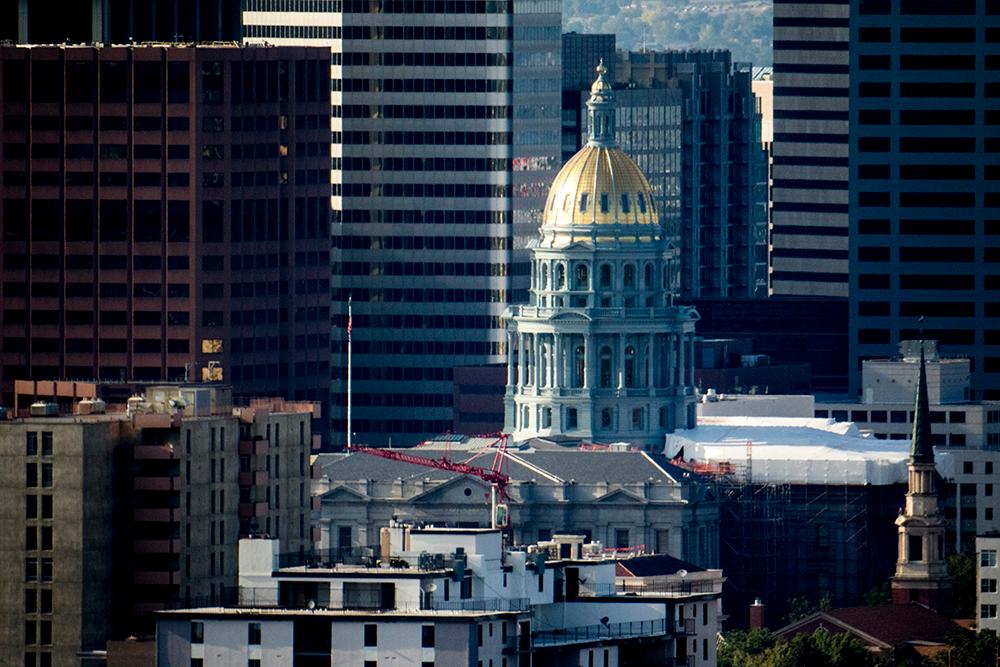

After warning of a slowing economy in March, Colorado economists served up a slightly rosier picture to state budget writers on Thursday.
Budget analysts for Gov. Polis and the Colorado Legislative Council briefed the Joint Budget Committee on its quarterly revenue forecasts. Both predicted a continued strong economy and revenue growth in upcoming fiscal years.
The increase should be enough to trigger tax cuts and refunds under Colorado’s Taxpayers’ Bill of Rights.
The news raises the stakes in any fight over TABOR reform. In the last legislative session, state lawmakers referred Proposition CC to the November ballot. If voters agree, it would allow the state to keep that extra money in future years. The money would be split between transportation and education.
“I think a lot of people felt, ‘Why are we going to the ballot to ask voters for permission to retain revenue when projections show we are actually not going to be over our TABOR cap,’” said Democratic Sen. Dominick Moreno, chair of the Joint Budget Committee. “This very much makes the case to voters that if this permission is not given, we will be issuing refunds for the foreseeable future in multiple fiscal years.”
Lauren Larson, director of the Office of State Planning and Budgeting, predicted refunds could amount to $1.3 billion over the next three years.
Even if Prop CC passes, Moreno added, the legislature should still consider a special session to avoid any refunds in the 2019-2020 fiscal year. That’s because the proposition isn’t retroactive, so it would only allow the state to keep additional revenue going forward.
Gov. Polis would need to call a special session and any discussion about that possibility are “in their infancy,” Moreno said.
State economists disagreed on the details of a refund for the 2019 tax year.
While economists for both the Colorado Legislative Council and the OSPB predicted revenue would push the state over the TABOR revenue cap, they question how much.
Colorado currently has three methods to return money to taxpayers. The first $150 million that comes in over the spending cap goes to local governments to provide property tax exemptions to seniors and veterans. Any additional revenue goes to sales tax cuts or income tax refunds.
Under the OSPB prediction, the state would reimburse local governments for a property tax exemption for seniors and offer a break on tiered sales tax rates.
But the Colorado Legislative Council predicts large enough revenues to trigger an income tax rate reduction for the 2019 tax year. By their math, the state’s 4.63 percent tax rate would drop to 4.5 percent.
The forecasts chalk up the increased revenue to two factors: the strong economy and a larger tax base thanks to the 2017 federal tax cuts.
But both forecasters warned harder times could be around the corner. They predict the U.S. and Colorado economies will continue to grow in 2020, though at a slower pace than in recent years. The forecasts also note higher volatility in their predictions due to the federal tax cuts and increased trade tensions.








